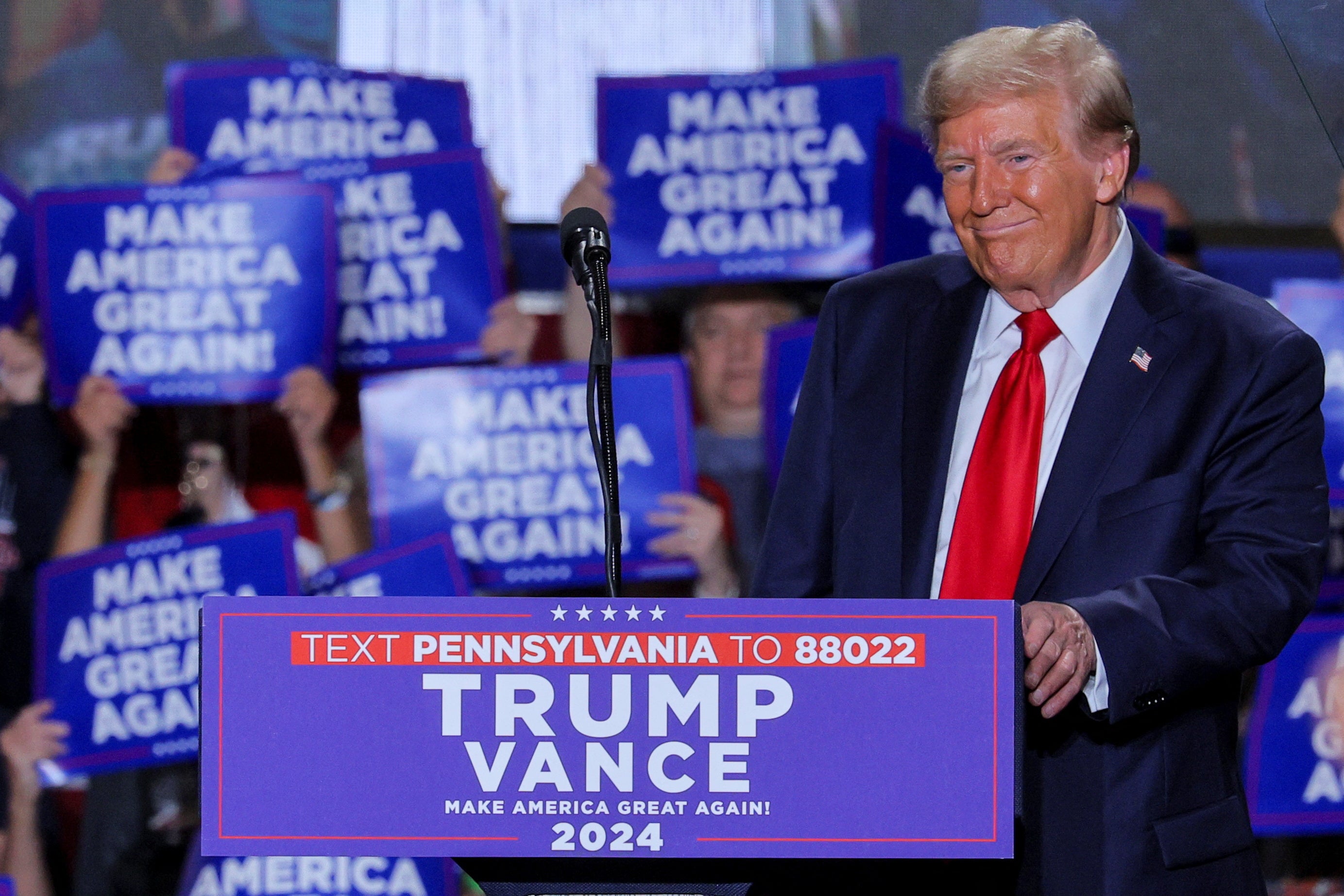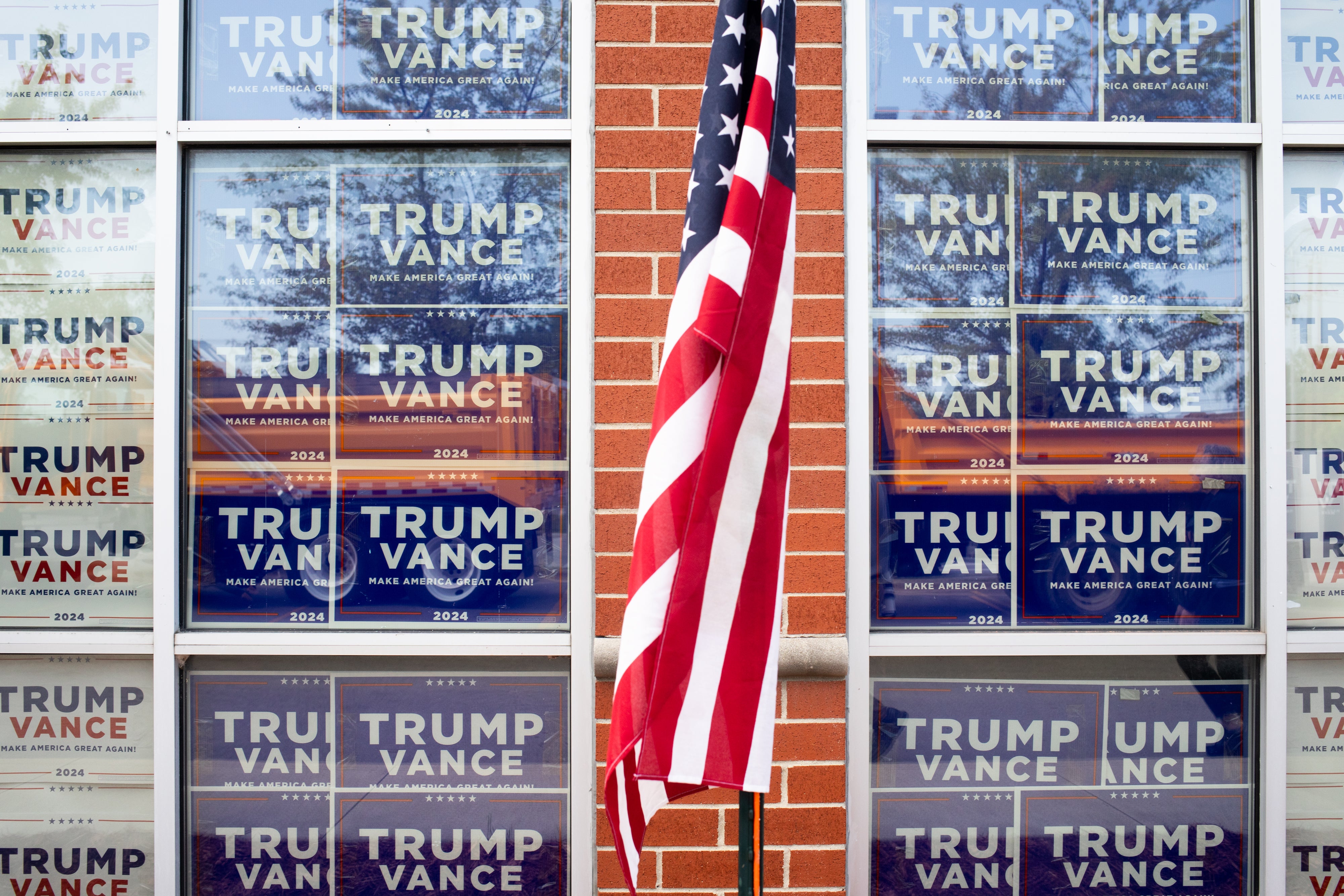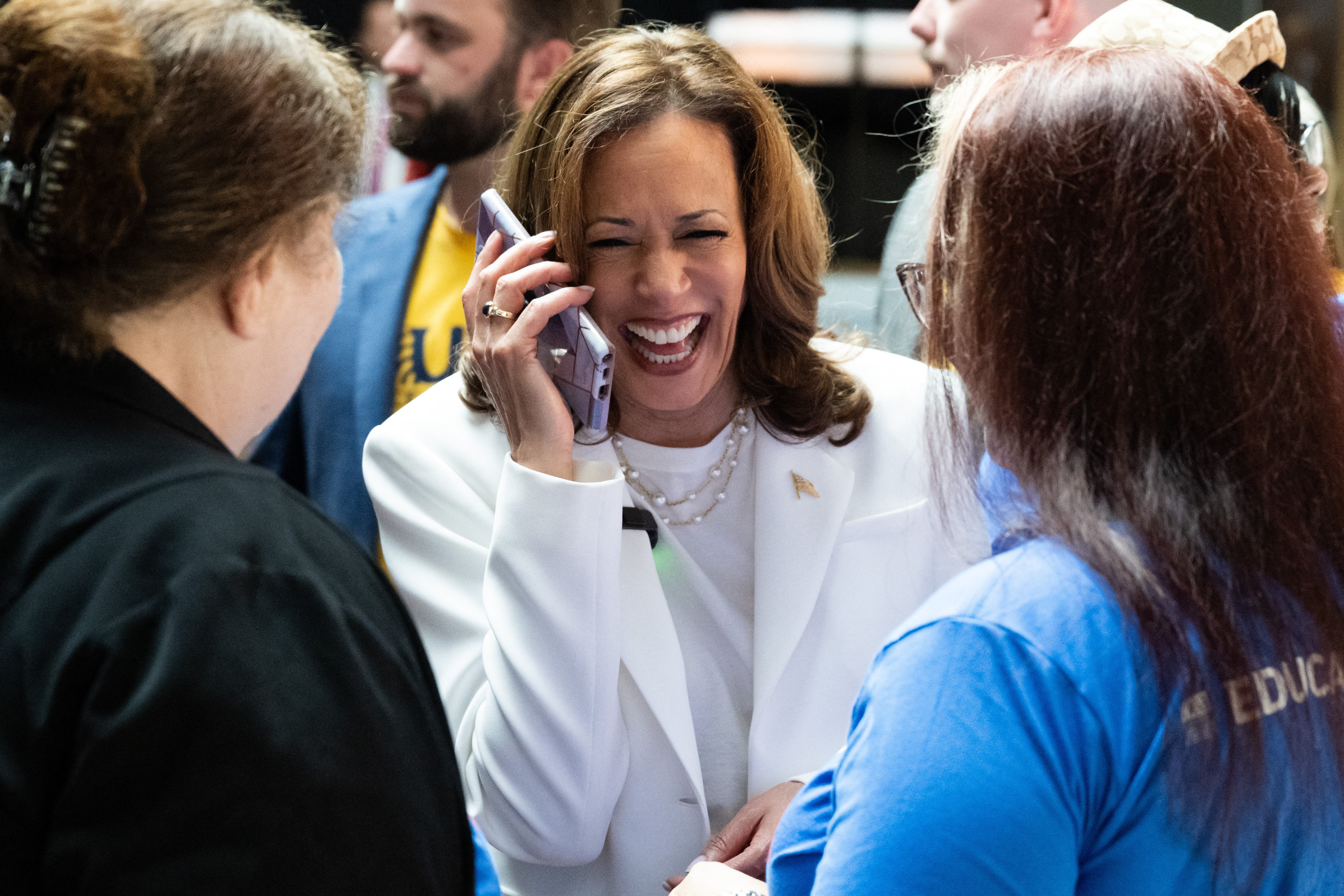The ‘Trump Force 47’ army of volunteers is barely moving the needle in its bid to swing the election
The Trump campaign is relying on super PACs and volunteers to drive turnout efforts, an unorthodox tactic
Your support helps us to tell the story
From reproductive rights to climate change to Big Tech, The Independent is on the ground when the story is developing. Whether it's investigating the financials of Elon Musk's pro-Trump PAC or producing our latest documentary, 'The A Word', which shines a light on the American women fighting for reproductive rights, we know how important it is to parse out the facts from the messaging.
At such a critical moment in US history, we need reporters on the ground. Your donation allows us to keep sending journalists to speak to both sides of the story.
The Independent is trusted by Americans across the entire political spectrum. And unlike many other quality news outlets, we choose not to lock Americans out of our reporting and analysis with paywalls. We believe quality journalism should be available to everyone, paid for by those who can afford it.
Your support makes all the difference.Republican organizers in battleground states are worried that the Trump campaign isn’t doing enough to drive GOP turnout, as Kamala Harris maintains a roughly three per cent lead in national polls and similar margins in battleground states.
GOP operatives told Politico that the Trump campaign’s tactics to reach voters, relying heavily on super PACs and an army of “Trump Force 47” volunteers to knock on doors and get out the vote, hasn’t made as much of a dent as they would’ve wished in key toss-up states like Michigan and Nevada.
“There’s really no organization,” a Republican operative in Nevada told the outlet. “He comes out, they scramble to do a rally … but after that, there’s just really nothing else.”

“They are out-matching us in money, in enthusiasm and in the ground game,” Michigan-based strategist added in the article.
The Trump campaign has insisted it’s running “the most robust and modern ground game ever,” claiming to have more offices open in battleground states than Harris, and to have tens of thousands of trained area captain volunteers.
Earlier this year, the Federal Election Commission decided that campaigns can formally coordinate on turnout efforts with outside groups like super PACs.
The decision meant that campaigns now had get out the vote partners who could raise more money with less scrutiny, but working with such groups has its downsides, too.

“Outside groups are going to do more and more of this,” Chris Carr, who oversaw Trump’s field operations in 2020, toldThe New York Times last month. “But the cautionary tale for donors and for everybody else is: Are they actually doing what they said they’d do?”
The Trump campaign seems to think so, partnering heavily with groups like Elon Musk’s America PAC, Turnout for America, America First Works, Turning Point Action, and Pennsylvania Chase on their turnout efforts.
This summer, as Trump was reeling in the aftermath of his May hush money verdict, his campaign unveiled Trump Force 47, an effort to recruit and train volunteers to drive turnout.

The move marked the latest tactical shift within the Republican party as Trump has gained ever more influence over its machinery.
In March, Trump allies took control of the Republican National Committee, with Trump’s daughter-in-law Lara Trump occupying the role of co-chair.
Since taking charge, they have scrapped previous RNC turnout plans and made staffing changes.
The Harris campaign has a considerable fundraising advantange over Trump as well, with over $100m more cash on hand than the Republican as of figures reported last month.

Join our commenting forum
Join thought-provoking conversations, follow other Independent readers and see their replies
Comments